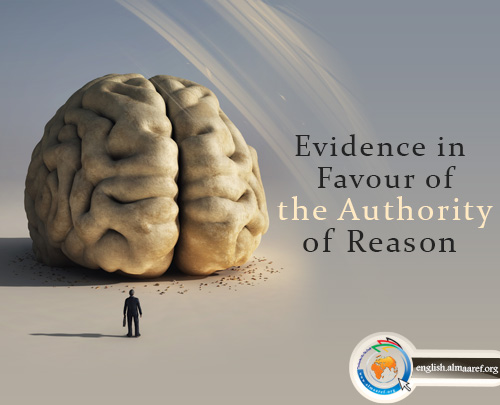Paying attention to the context of the verses, that is which comes before and after a particular verse (which we wish to comment upon) is in some ways, a branch of the sixth prerequisite of tafsir – consideration of the harmony that exists in all the verses of the Qur`an.
For example, we know that the Qur`an speaks about various issues and brings forth numerous verses in regards to a specific topic. In such an instance, referring to only one verse and neglecting the other verses would not result in anything but inexactitude and distancing oneself from the true goal of this Noble Book.
However it is not only the Qur`an which, in trying to comprehend its sentences, must be understood and explained by seeing everything which comes before and after a particular verse. Rather, in order to explain the words of any wise person, this method (which is currently being discussed) must be employed.
In order for this discussion to be clear in the minds, we present the following examples:
In Suratul Araf (7), verse 35, Allah (awj) says:
﴾O children of Adam! If there come to you Messengers from among yourselves, relating My communications to you, then whoever shall guard (against evil) and act aright, they shall have no fear nor shall they grieve.﴿1
In explaining this verse of the Qur`an, if we abstain from referring to that which came before and after it and simply take the verse on its own, then its meaning would be that the Qur`an has kept the door open for other prophets to come after the Noble Prophet Muhammad (peace be upon him and his household) and has not shut the door of prophethood. However we know that in another verse of the Qur`an, it is stated that Prophet Muhammad (peace be upon him and his household) is the final and seal of all the prophets (and none shall come after him) just as we read:
“Muhammad is not the father of any of your men, but he is the Messenger of Allah and the last (and seal) of the prophets, and Allah is cognizant of all things.”2
The root of these two opposite conclusions is that in the commentary of the first verse mentioned, there was no attention paid to the context of the verse and it was reviewed without keeping in mind the commentary of the verses that came before or after it. However, if one simply refers to the Qur`an itself, they would have seen that this verse is only one section of a collection of twenty-six verses (verses eleven to thirty-six) of Suratul Araf (7) which elucidate upon an event that took place at the beginning of the creation of humanity. Thus, we see that these verses are in regards to the time period of the creation of Adam (peace be upon him), his being removed from Paradise and being ordered to live on the Earth along with his wife and children.
In such an instance in time (when this was happening), Allah (awj) addressed the sons of Adam (peace be upon him) and told them, ﴾O’ children of Adam! If a prophet comes to you, then whosoever of you displays consciousness (Taqwa) of Allah and chooses the path of righteousness shall have no fear or grief!﴿
There is no doubt that after Adam (peace be upon him) settled down on Earth, countless prophets came from Allah (awj) to guide mankind and all of their missions were one and the same:
“…then whoever shall guard (against evil) and act aright, they shall have no fear nor shall they grieve.﴿
Such an address (by Allah (awj)) which took shape at the beginning of creation does not prevent us from accepting the fact that our Prophet (Muhammad (peace be upon him and his household)) is the final prophet and it is through him that the door of Propethood, which up until the point in time (of him coming) had been open for so many years, was shut to humanity for various reasons.
Thus in summary: In this instance, the Qur`an is addressing a specific period and is relating an incident to us. However this does not mean that this is something that would take shape after the revelation of this verse that is being reported about (that another prophet would come).
This reality only becomes apparent when we know that the collection of twenty-six verses (verses 11 to 36) of the Qur`an in Suratul Araf (7) are directly addressing the (actual) children of Adam (peace be upon him) as is seen when they are directly spoken to three times by the phrase, “O’ Children of Adam!” as can be seen in the verses below:
﴾O’ Children of Adam! Surely we have sent down to you clothing…﴿3
“O’ Children of Adam! Do not let Satan test you as He ousted your parents…﴿4
“O’ Children of Adam! If there come to you Messengers from among yourselves…﴿5
In another instance in which the Qur`an speaks about the beginning of creation, we see the same wordings being used, such as in the following example:
“Did I not take a covenant from you, O children of Adam that you should not serve Satan?﴿6
This form of addressing (by Allah (awj)) is related to the period of the beginning of creation and is in accordance with that occasion and is not in reference to the time of the Noble Prophet of Islam (peace be upon him and his household).
With this explanation, it becomes clear that the address in the verse under review is among the first Divine addresses at the time of the beginning of creation. Thus, there is no substance in relating them to the issue of the finality of prophethood and the source of this error in judgment is due to not paying attention to the context of the verses.
A Consideration of the Context of the Verses and the Successively Narrated Ahadith
Even though referring to that which comes before and after a particular verse (in understanding its true meaning) is one of the keys for a correct and accurate exegesis of the Qur`an, unfortunately, the context of the verse is effectual only when the verse under review is not proven to be independent of the verses which came before and after it. When it is proven to be independent of the verses around it, then we cannot refer to the context of the verses in order to explain and comment upon it.
A study of the verses of the Qur`an confirms the fact that sometimes (and we stress on the word sometimes) before the Qur`an finishes speaking about a particular topic, it may bring a new theme into the discussion. Then when it finishes with that topic, it would revert to the original theme of discussion and this is one of specialties of the Qur`an. This is the same thing that is more or less, seen in the words of eloquent and articulate speakers as well.
Of course, our purpose in stating this is not to say that in the Qur`an, within the confines of a particular discussion, another topic is brought up which has absolutely no relevance or bearing to the original discussion. Technically speaking, we do not wish to state that one verse that is built upon a specific theme and issue is mixed in with other verses that are related to other topics and themes and intrudes or interrupts the flow of verses. Rather, our meaning here is that at the same time that it safeguards the perspective of the verses, before concluding a topic within the initial discussion, a new topic is also introduced and the first topic is then completed in the (remaining) verses.
Examples of this Issue
In Suratul Baqarah (2) in verses 221 to 240, the Qur`an brings forth issues related to husband, wife, children, the issues of divorce and the death of the husband. The entire collection of verses of this section is completely in unity and harmony with one another.
However, after verse 237, in verses 238 and 239 we see that the issue of protecting the salat, especially the ‘middle’ salat has been mentioned and the performance of the salat in the state of jihad has also been brought up. After this, we see that the verses then revert to the initial topic (of marriage and family life). Thus, what is the suitability for these two verses to come up in the middle of the discussion on family issues? At present, this is not our discussion however this is something that we are able to perceive by reviewing these verses.
Nevertheless, at this point, in order for this issue to be understandable for the readers, we bring forth these verses of the Qur`an:
﴾And if you divorce them (women) before you have touched them (had sexual relations with them) and you have appointed for them a portion (dowry), then (pay to them) half of what you have appointed, unless they relinquish or he should relinquish in whose hand is the marriage tie; and it is nearer to righteousness that you should relinquish; and do not neglect the giving of free gifts between yourselves; surely Allah sees what you do. Attend constantly to prayers and to the middle prayer and stand up truly obedient to Allah. But if you are in danger, then (say your prayers) on foot or on horseback; and when you are secure, then remember Allah as He has taught you what you did not know. And those of you who die and leave wives behind, (make) a bequest in favour of your wives of maintenance for a year without turning (them) out, then if they themselves go away, there is no blame on you for what they do of lawful deeds by themselves, and Allah is Mighty, Wise.﴿7
As can be seen in these verses, the first and last past of this section are in regards to the issue of marriage and relations while the verses in the middle are in regards to protecting the salat – with special emphasis on the middle salat and the salat at the time of fear (such as war or from an enemy, etc.).
Therefore, whenever clear and unambiguous proofs such as a successively narrated hadith (mutawatir) or a hadith which accompanies hints that necessitate knowledge of the content of the tradition contradict the context of the verses, then we must act according to the conclusion which we have reached from the ahadith. Thus, in such an instance, we must not regard the context of the verses of the Qur`an, but rather focus our attention on the correct ahadith.
We present the following two examples to further elucidate this issue:
a. In Suratul Ahzab (33), from verses 28 to 35, the Qur`an discusses the wives of the Noble Prophet of Islam (peace be upon him and his household). However in verse 33, we see the following sentence:
﴾Surely Allah wishes to remove all forms of impurity from you, Ahlul Bayt, and to purify you with a thorough purification.﴿8
The context of the verses before and after would tell us that this verse is related directly to the wives of the Noble Prophet of Islam (peace be upon him and his household). However, the successively narrated ahadith which have come to us from both sides (the Shi’a and the Ahlus Sunnah) tell us that this verse was revealed in regards to a specific group of people who have been beautified with the adornment of infallibility. Thus in this instance, the undeniable ahadith take precedence over the context of this verse.
Other than this, there is even clear proof in the verse itself to prove that this part of the verse is not in regards to the wives of the Prophet of Islam (peace be upon him and his household). These two proofs are the masculine pronoun used in the word “from you” and “purifyْ” which announce to us that there is no relationship between this part of the verse and that which has come before it in regards to the wives of the Prophet Muhammad (peace be upon him and his household).9
Then, why has the purity and infallibility of the Ahlul Bayt (peace be upon him) been mentioned within the discussion concerning the wives of the Prophet of Islam (peace be upon him and his household)? This is not part of our discussion here and thus we leave it at that.
b. In Suratul Ma`idah (5), from verses 1 to 5, the Qur`an speaks in a particular way about meat and other issues regarding food. However in the middle of the third verse, we read:
﴾On this day, I have perfected your religion for you and have completed My bounties upon you and have been pleased to choose Islam as your religion.﴿10
The rule of reviewing the context of the verses of the Qur`an, commands us to accept that the part of the verse quoted above is in regards to the day when various things were forbidden for consumption such as the animal which has died on its own, blood, the flesh of swine and other things. Thus, the meaning of ‘this day’ (أليوم) as mentioned in this part of the verse is the day when these things were made prohibited for human consumption. However the clear and unambiguous proofs and the successively narrated ahadith state that this part of the verse was not revealed in regards to the prohibition of various types of meat. Rather, we are told that this part of the verse was revealed in regards to the Day of Ghadir [18th of Dhul Hijjah] – the day when the faith and teachings of Islam were perfected and completed through the designation of the leader of the community [after the Prophet of Islam (peace be upon him and his household) - that being Imam ’Ali b. Abi Talib (peace be upon him).]
Thus, the commentator of the Qur`an who is seeking to display the realities (of the Qur`an) must refrain from explaining the verse according to the context of that which has come before and after it and must instead refer to the definite ahadith in this regard.
In this issue, there are many more examples which we can bring to act as proofs for our statements, however in order to keep this discussion brief, we shall not mention them here.
* Introduction to the Science of Tafsir of the Qur`an. By Ayatullah Ja'far Subhani. Chapter 8. Published by: The Islamic Education Board of the World Federation of KSIMC. Registered Charity in the UK No. 282303. Islam ic Centre - Wood Lane Stanmore, Middlesex United Kingdom, HA7 4LQ. Reproduced with permission by the Ahlul Bayt Digital Islamic Library Project team.
1- The ‘Arabic word, ‘إِمَّا’ mentioned in this verse was originally two words – ‘إِنْ’ and ‘مَا’ however since the area of pronunciation of these two words is very similar in the ‘Arabic language, the letter ‘ن’ was merged with the letter ‘م’. In reality, the word ‘إِمَّا’ is actually in the meaning of a ‘condition’ and thus, the meaning of this verse becomes, “Surely IF messengers come to you…”
2- Suratul Ahzab (33), Verse 40
3- Suratul A’raf (7), Verse 26
4- Ibid., Verse 27
5- Ibid., Verse 35
6- Surat Yasin (36), Verse 60
7- Suratul Baqarah (2), Verse 237 to 240
8- Suratul Ahzab (33), Verse 33
9- In our work, Mafahimul Qur`an, vol. 5, and The Third Path, we have discussed this verse in great detail and have proven, through using the undeniable proofs that the meaning of Ahlul Bayt (peace be upon him) is reserved for a specific group of people who were clearly identified by the Noble Prophet of Islam (peace be upon him and his household).
10- Suratul Ma`idah (5), Verse 3.




















